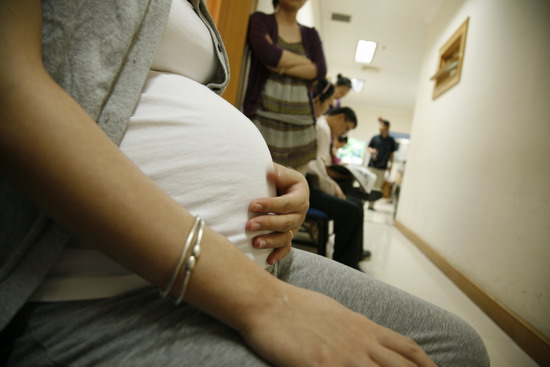Shanghai cracks down on illegal abortions
Local health authorities are stepping up efforts to curb the availability of illegal abortions as a means of protecting underage girls' physical and mental health.
|
|
|
A pregnant woman waits to be examined at a hospital in Shanghai on August 5, 2009. [CHINA DAILY] |
According to the Shanghai Municipal Health Bureau, 28 private hospitals were found to have engaged in illegally terminating unwanted pregnancies in an ongoing city inspection that began in May, including performing abortions without a license, illegally advertising their services and recruiting unqualified medical staff.
The hospitals received different penalties, depending on the severity of the violation, with the heaviest penalty being the closure of a hospital's gynecology department.
On its website, the bureau posted a list of more than 200 accredited hospitals in the city, where legal abortion services are available.
Under the law, teenage girls with unwanted pregnancies are advised to seek an abortion from one of these hospitals, with the accompaniment of a parent or close relative.
An unnamed official acknowledged that some girls who do not want their parents to know they are pregnant get abortions from illegal private hospitals that do not require parental notification for the procedure.
"Many girls don't care about abortion and view it as harmless. Some of them choose to use a drug to abort an unwanted pregnancy to avoid letting others know. This is a serious social issue that needs more public discussion," said Cheng Xiaomei, a social worker for a hotline that provides counseling services for pregnant teenagers.
With the arrival of summer vacation, a rising number of teenage pregnancies were reported in the city, according to the hotline.
So far this summer, the hotline has received more than 30 calls a day, a 20 to 30 percent increase on the rest of the year, with the average age of callers being 17.
In her experience, Cheng said most of the girls who call the hotline have little knowledge of sex and birth control.
"Access to proper sexual education is lacking, so their main source of information about sex is the Internet," she said.
The health bureau is currently working with education departments and teenage protection organizations to help raise awareness among teenagers.
 0
0 








Go to Forum >>0 Comments